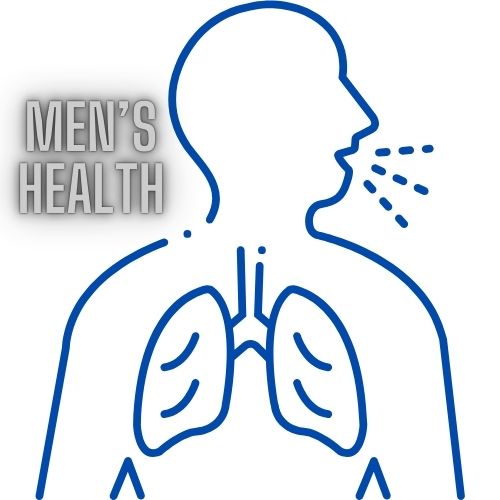Men’s health encompasses a broad range of topics related to physical, mental, and emotional well-being. While health issues can affect anyone regardless of gender, men often experience unique health challenges and may approach health care differently than women. Understanding these aspects can lead to better health outcomes and improved quality of life for men.
Physical Health
Physical health is a cornerstone of overall well-being and encompasses various factors, including fitness, nutrition, and preventive care.
Common Health Issues in Men
- Cardiovascular Disease:
- Heart disease is a leading cause of death among men. Risk factors include high blood pressure, high cholesterol, smoking, obesity, and a sedentary lifestyle. Regular check-ups and screenings are vital.
- Diabetes:
- Type 2 diabetes is increasingly prevalent among men, often linked to obesity and sedentary behavior. Managing weight and maintaining a balanced diet are crucial for prevention.
- Cancer:
- Common cancers in men include prostate, lung, and colorectal cancer. Early detection through screenings like prostate-specific antigen (PSA) tests and colonoscopies can significantly improve outcomes.
- Respiratory Issues:
- Conditions such as chronic obstructive pulmonary disease (COPD) and asthma are common in men, often exacerbated by smoking or environmental factors.
- Mental Health Disorders:
- Men are often less likely to seek help for mental health issues such as depression and anxiety. This can lead to significant consequences, including substance abuse and suicide.
Preventive Care
Preventive care is crucial for maintaining health and early detection of diseases.
- Regular Check-ups:
- Annual visits to a healthcare provider for physical examinations can help catch health issues early.
- Screenings:
- Screenings for cholesterol, blood pressure, diabetes, and certain cancers should begin at recommended ages based on risk factors.
- Vaccinations:
- Staying up to date with vaccinations, including flu shots and other recommended vaccines, is essential for disease prevention.
Nutrition
Nutrition plays a vital role in men’s health, affecting everything from weight management to chronic disease prevention.
Key Nutritional Considerations
- Balanced Diet:
- A diet rich in fruits, vegetables, whole grains, lean proteins, and healthy fats can help maintain overall health. The Mediterranean diet is often recommended for its heart health benefits.
- Portion Control:
- Understanding portion sizes is crucial for maintaining a healthy weight. Men often underestimate their caloric needs, leading to overeating.
- Hydration:
- Staying hydrated is essential for overall health. Water is the best choice, but men should also be aware of caffeine and alcohol consumption, which can lead to dehydration.
- Limit Processed Foods:
- Reducing intake of processed and high-sugar foods can help prevent obesity and related health issues.
- Nutritional Supplements:
- Some men may benefit from supplements, especially if dietary restrictions exist. Common supplements include vitamin D, omega-3 fatty acids, and multivitamins, but it’s essential to consult a healthcare provider before starting any supplement regimen.
Fitness
Regular physical activity is vital for maintaining health and preventing disease.
Exercise Recommendations
- Aerobic Exercise:
- Engaging in moderate-intensity aerobic activities like walking, running, or cycling for at least 150 minutes per week can improve cardiovascular health and aid in weight management.
- Strength Training:
- Incorporating strength training exercises at least twice a week helps build muscle mass, which naturally declines with age.
- Flexibility and Balance:
- Activities like yoga or tai chi can improve flexibility and balance, reducing the risk of falls and injuries.
- Setting Goals:
- Setting realistic fitness goals can motivate men to stay active. Tracking progress can also encourage commitment to a fitness regimen.
Mental Health
Mental health is just as important as physical health and can significantly impact overall well-being.
Common Mental Health Issues in Men
- Depression and Anxiety:
- Men often express depression differently than women, leading to underdiagnosis. Symptoms may include irritability, anger, or substance abuse rather than sadness.
- Stress Management:
- Chronic stress can lead to various health problems, including heart disease and digestive issues. Learning stress management techniques, such as mindfulness and relaxation exercises, can be beneficial.
- Substance Abuse:
- Men are more likely to engage in substance abuse as a coping mechanism for mental health issues. Seeking help through counseling or support groups is crucial.
- Social Connections:
- Maintaining strong social ties is vital for mental well-being. Men should seek friendships and support systems that foster open communication.
Seeking Help
Breaking the stigma surrounding mental health is critical. Men should feel empowered to seek help from mental health professionals when needed. Therapy, counseling, and support groups can provide valuable assistance.
Sexual Health
Sexual health is an essential component of men’s overall health, influencing both physical and emotional well-being.
Common Sexual Health Issues
- Erectile Dysfunction (ED):
- ED can be a symptom of underlying health issues, such as cardiovascular disease or diabetes. Open discussions with healthcare providers can lead to effective treatments.
- Low Testosterone:
- Low testosterone levels can affect libido, energy levels, and mood. Testing and treatment options are available for men experiencing these symptoms.
- Sexually Transmitted Infections (STIs):
- Regular screenings for STIs, including HIV, are crucial for sexually active men. Practicing safe sex can help prevent STIs.
- Fertility Issues:
- Men experiencing difficulties with fertility should consult healthcare providers for evaluations and possible treatments.
Aging and Men’s Health
Aging brings unique health challenges for men, necessitating adjustments in lifestyle and healthcare.
Health Considerations for Older Men
- Regular Screenings:
- Older men should undergo more frequent screenings for various health issues, including prostate cancer and cardiovascular health.
- Maintaining Mobility:
- Staying active can prevent mobility issues and enhance quality of life. Incorporating low-impact exercises can be beneficial for joint health.
- Cognitive Health:
- Mental stimulation through reading, puzzles, or social interactions can help maintain cognitive function as men age.
- Chronic Disease Management:
- Managing chronic diseases effectively is vital. Men should work closely with healthcare providers to create management plans that address their specific needs.
Lifestyle Factors
Several lifestyle factors can significantly impact men’s health.
Smoking and Alcohol
- Tobacco Use:
- Smoking is a leading cause of preventable disease and death. Men who smoke should seek resources for cessation, such as support groups or nicotine replacement therapies.
- Alcohol Consumption:
- While moderate alcohol consumption may have some health benefits, excessive drinking can lead to a host of health problems. Men should be mindful of their drinking habits and consider reducing intake if necessary.
Sleep
- Importance of Sleep:
- Quality sleep is essential for overall health. Men should aim for 7-9 hours of sleep per night to support physical and mental health.
- Sleep Disorders:
- Conditions like sleep apnea can disrupt sleep patterns and lead to significant health issues. Men experiencing sleep disturbances should consult healthcare providers.

Men’s health is a multifaceted topic that requires attention to physical, mental, and emotional well-being. By understanding common health issues, prioritizing preventive care, maintaining a balanced diet, staying physically active, and addressing mental health, men can improve their overall health and quality of life.
Empowerment through knowledge, routine check-ups, and open discussions about health can lead to better outcomes and a healthier future. Men are encouraged to take an active role in their health and well-being, breaking down barriers and stigmas that may prevent them from seeking help or support. By doing so, they can enjoy a longer, healthier life full of vitality and purpose.







